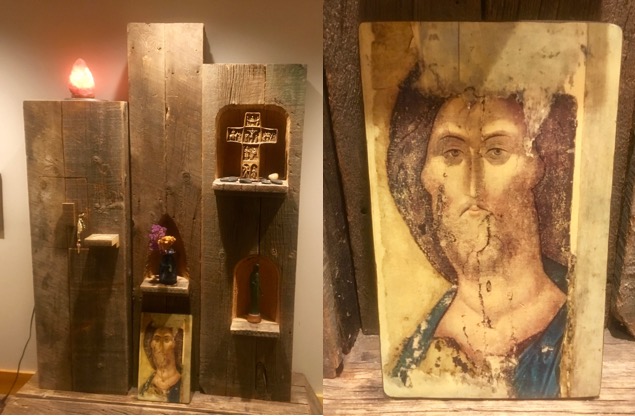Reading: Review the complete text
We have come to the end of our Advent journey. Hopefully our time together will encourage us to continue following Jesus throughout the Christmas season and the coming year. I want to thank each of you for joining us. It has been a blessing to share this time with you and Henri.
In his conclusion, Henri writes, “May my words be little seeds planted in your hearts.” (p. 132) As we celebrate the Incarnation when Jesus enters into the world, Henri’s little seeds show us who we follow, how we follow, and why we follow him. Henri’s guidelines for following Jesus are my takeaway from this wonderful book.
- Following Jesus is focusing on the One who calls and gradually trusting that we can let go of our familiar world and that something new will come. (p. 30)
- Following Jesus is moving away from fear and toward love. Always toward the Lord. (p. 45)
- Following Jesus is following the voice of the One who calls us away from useless wandering or from just sitting there. (p. 46)
- Following Jesus means to let go of the “I” and move toward the “other.” Following Jesus means to dare to move out of ourselves and to slowly let go of building our “self” up. (p. 46)
- Following Jesus means to live our life in his spirit, in his light, in his heart, but with our spirit, our lights, and with our heart. (p. 47)
- Following Jesus requires a conversion. It requires a new heart and a new mind. (p. 48)
- Following Jesus means to live a life in which we start loving one another with God’s original love and not with the needy and wounded love that harms others. (p. 59)
- Following Jesus in a life of discipleship, the Christian life, is about discovering how God’s presence can be made visible here and now by our love for each other. (p. 63)
- Following Jesus means moving in the right direction. Suddenly we know where we are going, and our lives take on a more regular pattern and we have focus. (p. 69)
- (F)ollowing Jesus . . . is in fact a letting go of our worldly self to find our true self in Jesus. (p. 70)
- Following Jesus means to live our life in companionship with the One who understands us fully. Following Jesus means a life in communion, with a guide. (p. 71)
- Following Jesus makes life very different and very new. (p. 72)
- Following Jesus cannot be a form of discipleship if it is out of fear. . . . Jesus does not want us to follow him out of fear. He wants us to follow him out of love. (p. 86)
- Following the One with whom we are in love is the full meaning of following Jesus. We follow not out of fear but out of love. (p. 89)
- Following Jesus means following the Risen Lord. Following Jesus means following the Lord who is the Lord of history, the Lord who is with us now and here, at this moment. (p. 109)
- (F)ollowing Jesus is following the Lord who speaks to you day after day and calls you always to a deeper and deeper communion with God. Following Jesus is entering more and more into the intimate mystery of God. God became flesh so that we could be led through him, with him, and in him in the glory of God the Father in the communion with the Spirit. (p. 111)
Do any of these statements touch you in a special way? What does following Jesus mean to you? What is your takeaway from Following Jesus? Please share whatever is on you heart.
As we end our Advent discussion, please plan to join us for our Lenten book discussion of Henri’s most popular book, The Return of the Prodigal Son. We begin on Ash Wednesday, February 26, 2020.
Once again, thank you for joining us. On behalf of myself and the Hienri Nouwen Society, may you and yours have a blessed and joyous Christmas season.
Peace and all good.
Ray Glennon

